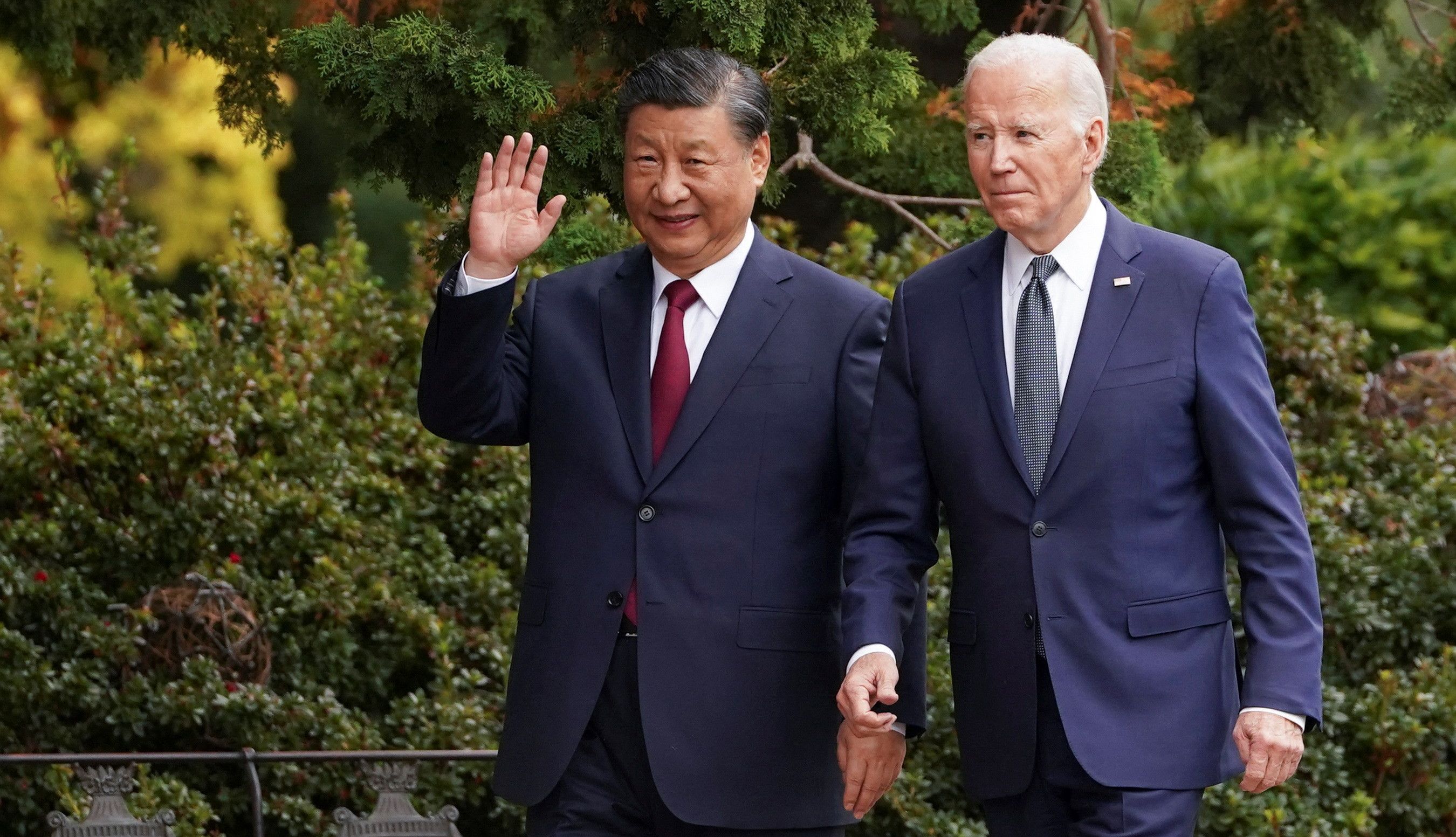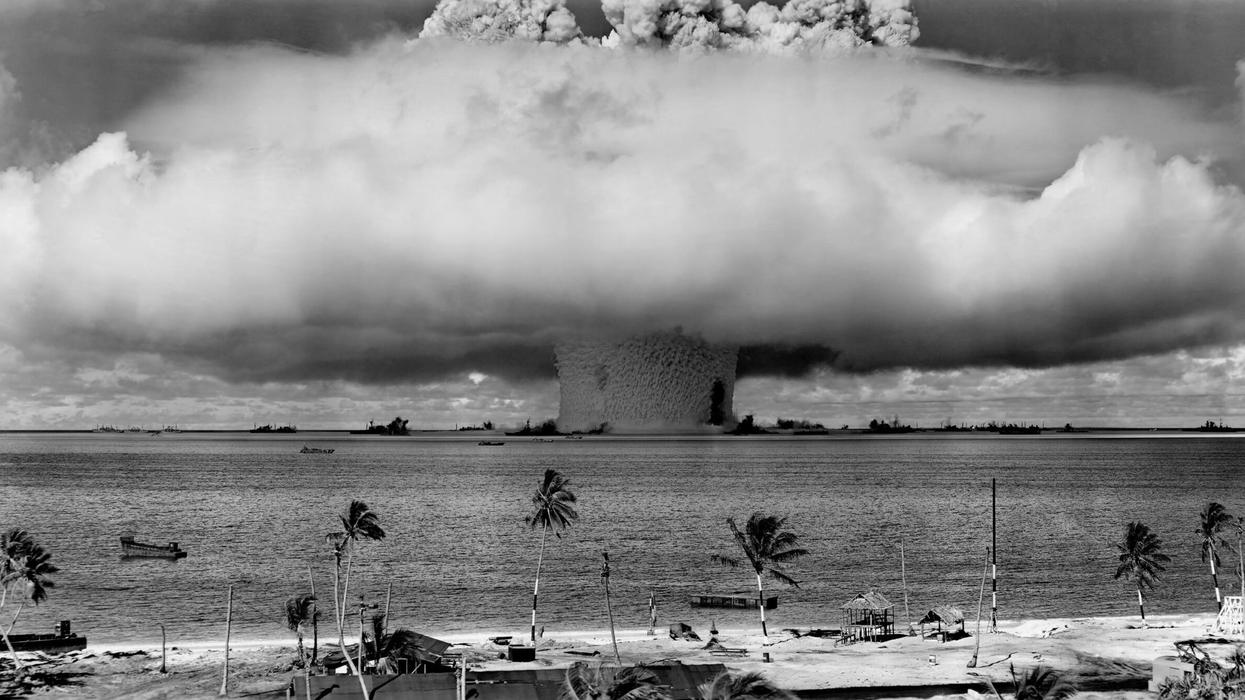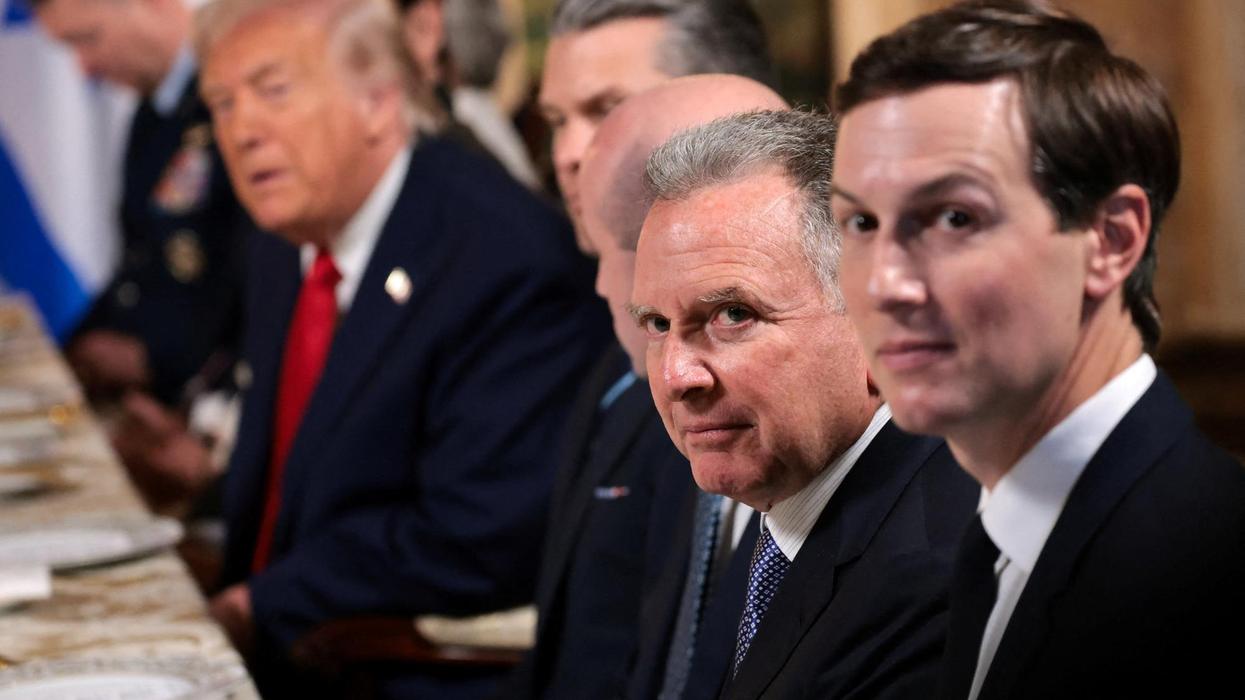Just a few weeks before COP28 in Dubai (UAE), U.S.-China climate cooperation is substantially back on track. Bilateral progress had been in a deep freeze since then-House Speaker Nancy Pelosi’s visit to Taiwan in 2022, and effectively even earlier. The Sunnylands Statement issued the day before the Biden-Xi summit in San Francisco on Wednesday marks a personal win for the two climate envoys (John Kerry and Xie Zhenhua), but even more important, a gain for bilateral relations and the planet as a whole.
The two sides affirmed their mutual commitment to methane reduction, helping triple renewable electricity capacity globally (also a G20 goal), post-peaking their countries’ electricity emissions in this decade, advancing at least five carbon capture projects each, and restarting the U.S.-China Energy Efficiency Forum. All three key fossil fuels — coal, oil, and gas — were mentioned in the statement, a welcome even-handedness from Washington, which has historically focused much more on coal than the other two fuels. The two states also agreed on broader principles for the first Global Stocktake in the upcoming COP — an important mechanism in which countries will jointly evaluate climate progress.
Adaptation (improving resilience of communities to climate impacts) and Loss & Damage (also called climate reparations) are two challenging climate areas that divide richer countries from medium- and low-income ones. A recent U.N. report found that adaptation is being underfunded by a factor of 10-18, and financing actually declined by 15% recently. The Sunnylands Statement calls for developed countries to “at least double their provision of adaptation finance.” But even meeting this goal would still leave adaptation funding far below the levels needed.
China is currently the world’s biggest emitter of planet-warming (greenhouse) gases. But global temperature rise depends on the net quantity of such gases in the atmosphere. As the wealthier country having contributed close to twice the net greenhouse gas content in the environment as China, the U.S. bears a greater responsibility in funding both adaptation and loss & damage. Washington has generally dragged its feet at global talks on Loss & Damage in particular. But, as a high-capacity state with a smaller but still significant contribution to the stock of greenhouse gases, it would be welcome if China too announced specific financial contributions at COP28 to these efforts.
The U.S.-China climate conversation has often been a lopsided affair with Washington seeing itself as the moral arbiter — telling China what to do and then calling it out for not complying. This has been the case, for example, on coal, which China continues to use far too much of, building two new plants a week. But America’s shale gas and tight oil production surge since 2010 is no less worrying. The U.S. continues to invest in new fossil extraction, when it is clear that we need to stop investing in any such new projects in both countries if we are to keep warming under control. When it comes to addiction to fossil fuels, both China and the United States are behaving badly, as indeed are most other major emitters, a trend accentuated by the Covid-19 shock and the Ukraine war.
However, a massive ramp-up of new solar and wind energy is the flip side of China’s climate story. These additions have now outpaced the growth in electricity demand. This marks a key inflection point indicative of an absolute decline in electricity emissions by 2024. China is also by far the world’s biggest market for electric vehicles — it is projected that these will make up as much as 40% of new car sales in the country in 2023; the comparable U.S. figure is less than 10%.
Beijing’s development finance activities in the Global South as in the Belt and Road Initiative are also changing. These projects are increasingly greener and leaner and renewable energy is likely to be a core calling card of their future. These policy shifts from China will help fight climate change and should be welcomed by the United States.
Though the United States and China could do a lot more together and separately on the climate action front, the geopolitical implications of the Sunnylands agreement are already positive. U.S.-China convergence formed the bedrock that opened the door to the 2015 Paris Agreement and fortified the healthy pragmatism at the time in U.S.-China ties. The two states should now build on the forward momentum in Sunnylands — and the positive atmospherics of the Biden-Xi summit meeting that followed — to stabilize and improve their bilateral ties in many other areas beyond climate change.
- G20 summit sets up Western clash with a rising Global South ›
- Lots of talking produced Xi-Biden meeting. Now, action? ›
















